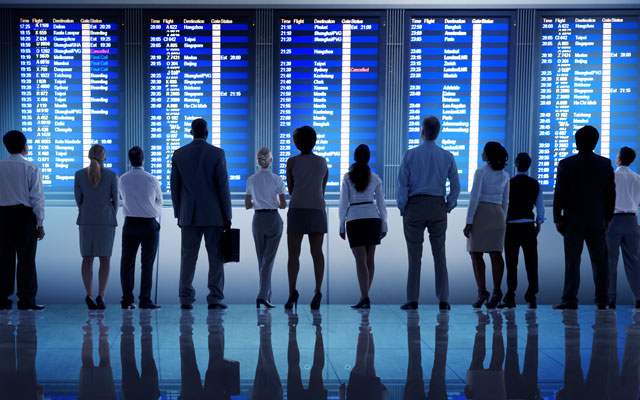- New approaches needed for flight, hotel contracting
- Different, pricier TMC pricing models likely to hit Asia
- CTM role at risk as corporate travel remains suppressed

Domestic business trips in countries like China and the US may have clawed back to between 70 per cent and 80 per cent of 2019 levels, but regional buyers in Asia say international travel demand at the start of 4Q2020 is still languishing and continues to be restricted to essential travel.
Lamenting the airline conundrum, one CTM overseeing 10 markets in the pharmaceutical sector, quipped: “Our management is conservative but even if our travellers are allowed to fly, which airline is operating? We have shut down our online booking tool (OBT) since we can’t book anything.”
While Ericsson is busier than ever with a number of new projects, regional travel manager Asia-Pacific, Florence Robert, is facing a challenge in having to “work manually with the airlines as the Chinese government has removed almost everything from the GDS and we do not know why”.
There is also “risk in buying air tickets”, Robert added, as IATA has forecast that 21 major airlines may cease operations during this crisis.
It is a different situation in hotel contracting, with a buyers’ market situation emerging in most major cities, observed a Singapore-based CTM in charge of South-east Asia.
This CTM is shrinking the number of global chain partners to leverage on dynamic discounts instead of static rates.
“Before the Covid-19 outbreak, the take-up rate was 50-50. For chains happy to stay in our programme – four global and two local – we are in preliminary discussions for dynamic and static rates to be loaded and the agreement is to allow us to ‘cherry-pick,” he told TTGmice.
Different TMC pricing model likely
With TMCs hurting from the travel slump, CTMs worry that a different pricing model may be adopted to help them tide through the tough times.
Ericsson has “running contracts” with three global TMCs in different regions and Robert is aware that one of them is going to increase its transaction fee in the US although no other regions have been alerted to such a change. Still, she is bracing for the same thing to happen in Asia soon.
Robert said: “Not only are TMCs downsizing in some areas, it is difficult to predict if they will survive. With consolidation and fewer vendors because of the (Covid-19) situation, we decided to push back our RFP.”
A CTM in the pharmaceutical sector told TTGmice that her TMC “needed help” and her company is now paying a “contact fee” for every call or email received to provide service.
She acknowledged: “Going forward, the TMC pricing model will change. TMCs cannot survive on transaction fees. It is not sustainable. It boils down to when we can start to travel. We thought it would happen in 3Q2020 but it has not started yet and plans keep changing.”
On her wishlist is a “more proactive” TMC ecosystem which employs “modern technology”, something which agencies cannot afford to invest in now because cashflow is very tight.
She explained: “Singapore Airlines has just rolled out NDC but our TMC is not ready for NDC hence we have to go back to manual and two systems – GDS and NDC.”
Diminishing job security
A severely impacted corporate travel appetite has also meant a reduced need for professional CTMs.
A Singapore-based CTM expressed worries about his role: “There is a worldwide recession, there is not so much travel and I am concerned about the industry as many have been furloughed or have lost their jobs.”
He explained that his company has a core team of CTMs as well as a team of nearly 100 people, including support staff, looking after travel, meetings and card services in the region.
He opined that if the situation drags on, the current headcount could be reduced to just one person in each of the 14 markets the company operates in.
However, Adriana Nainggolan, travel programme manager, Asia-Pacific, Autodesk, and a Shanghai-based CTM remain optimistic.
Nainggolan said: “The situation now is very complicated with many borders closed and many travel bubbles. There is no point predicting who can travel as the news keeps changing. We need to wait and have to prepare to conduct refresher training for staff and with our preferred vendors.”
The Shanghai CTM added: “We need to find a way around Covid-19. We just have to find the right balance to keep the business going and keep our travellers safe. We have to learn to adapt, as Covid-19 could be around for a long time.





















